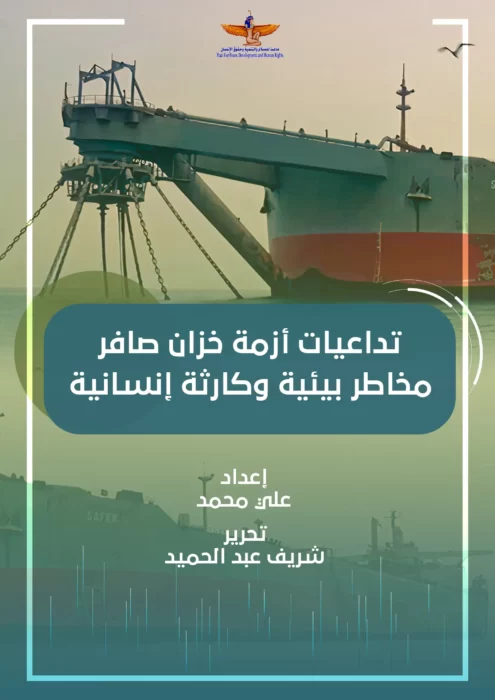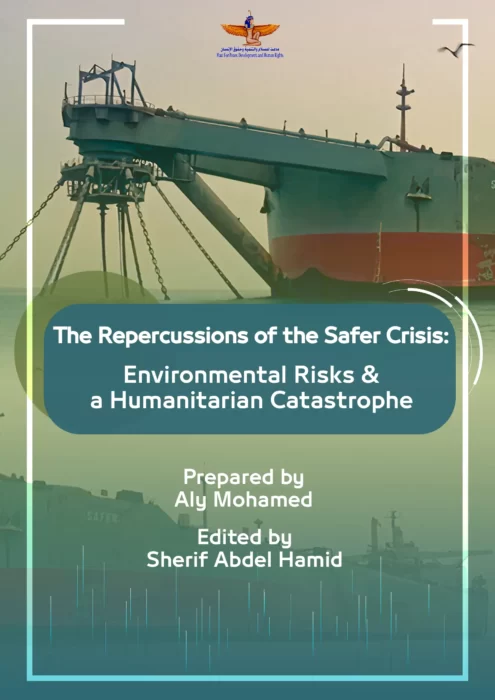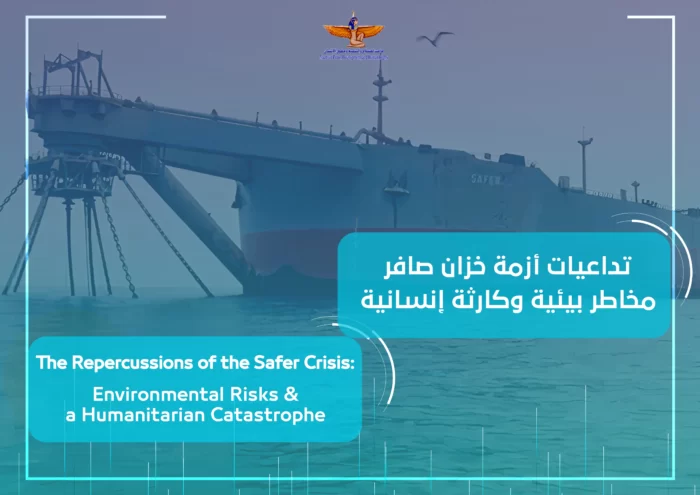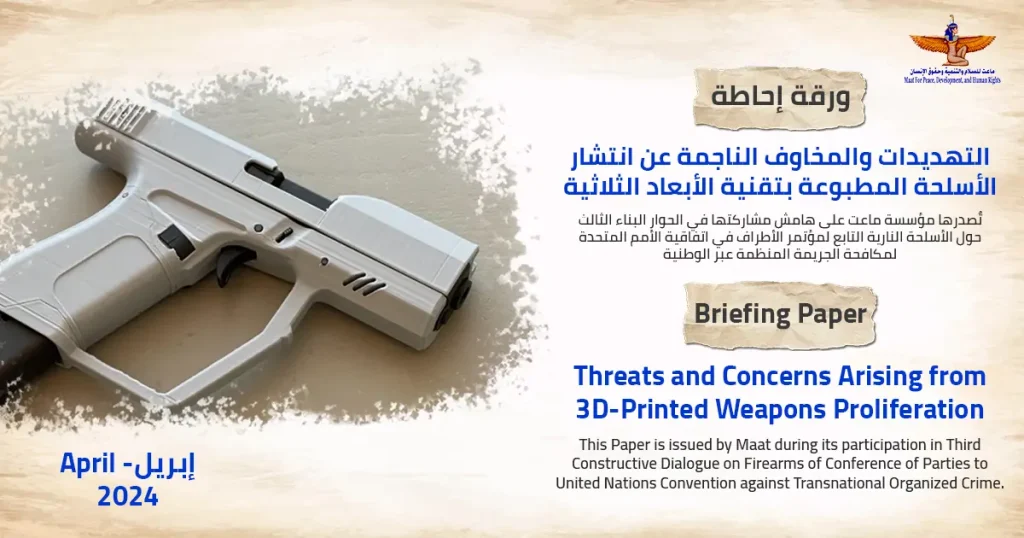In a new report: Maat Warns of an Imminent Environmental & Humanitarian Catastrophe in Yemen Due to the Safer Reservoir
Okeil: The Houthi militia is violating its obligations with the United Nations and an unprecedented environmental and humanitarian catastrophe is brewing in Yemen
Ali Muhammad: Oil leakage from the Safer reservoir will exacerbate the internal displacement crisis in Yemen
Maat for Peace, Development and Human Rights issued a new report entitled "Repercussions of the Safer Reservoir Crisis: Environmental Risks & a Humanitarian Catastrophe", which monitored and analyzed the repercussions of the Houthi militia's continued refusal to repair the Safer Reservoir, and concerns about oil leakage from the Houthi-controlled tanker, which constituting an unprecedented environmental and humanitarian catastrophe that would violate the right to a clean, healthy and sustainable environment, the right to health, and the right to food. Moreover, the problem of internal displacement in Yemen is exacerbated, which would deepen the dire situation of human rights in Yemen.
The report indicated that the total cost of such a leak could be estimated at between 20 and 25 billion dollars. The total cost of cleansing and rehabilitating coastal habitats that will be affected in the event of an oil spill from the reservoir exceeds $51 billion. In addition, should the maintenance plan proposed by the United Nations is not implemented, the oil spill or explosion of the reservoir will have catastrophic effects on thousands of people, ailing the Yemeni economy, obstructing the global trade, and damaging the marine environment and public health.
The report indicated that since the beginning of the conflict in Yemen until now, and in clear violation of all international conventions and norms, the Houthi militia has been delaying the implementation of the reform plan proposed by the United Nations to address the disastrous situation of the Safer reservoir, which includes three steps; tank condition assessment; performing necessary maintenance; and finally getting rid of the tanker. However, the Houthi militia continued to use the reservoir as a tool to achieve political gains without regard to the unprecedented environmental and humanitarian damage that harms the Yemeni economy, coastal communities, international trade and public health. The oil spill will also have enormous impacts on the humanitarian situation in Yemen, because most of the food aid comes to the population through the port of Hodeidah, which is close to the Safer reservoir.
The report emphasized that although the United Nations presented a plan to repair the Safer reservoir more than once, the Houthis continued to delay the implementation of this plan, and put obstacles in front of United Nations experts, and did not initiate any measures to implement this plan. This constitutes a violation of the obligations of the Houthi militia with the United Nations regarding the status of the reservoir, especially the memorandum of understanding signed between them in March 2022. It will also be considered a violation of the agreement signed between the Houthis and the United Nations in November 2020, which included a clause allowing UN experts to access the reservoir. It also constitutes a clear violation of Security Council Resolution No. 2511 of 2020, which demanded the arrival of United Nations inspectors without delay to inspect and maintain the reservoir.
The report emphasized that although the United Nations presented a plan to repair the Safer reservoir more than once, the Houthis continued to delay the implementation of this plan, obstructed the work of UN experts by putting endless obstacles in front of them, and initiated no measures to implement this plan. This constitutes a violation of the obligations of the Houthi militia with the United Nations regarding the status of the reservoir, especially the memorandum of understanding signed between them in March 2022. It will also be considered a violation of the agreement signed between the Houthis and the United Nations in November 2020, which included a clause allowing UN experts to access the reservoir. It also constitutes a clear violation of Security Council Resolution No. 2511 of 2020, which demanded the arrival of United Nations inspectors without delay to inspect and maintain the reservoir.
For his part, Ayman Okeil, the international human rights expert and President of Maat, warned of the catastrophic effects on the humanitarian situation in Yemen as a result of the oil spill from the Safer reservoir, especially in northern Yemen where the Houthi militia governs by the rule of arms. Okeil added that the oil spill from the reservoir will obstruct shipping operations in the Yemeni ports in Hodeidah and Saleef, which leads to blocking 68% of the food aid entering northern Yemen, thus hindering the arrival of foodstuffs to about 8.4 million people, and prices of foodstuffs would consequently spike, at a time when Yemen is facing the worst humanitarian disaster in the world and is just a few steps away from famine.
Okeil said that the consequences of the Safer reservoir crisis will not only affect the population in Yemen, but also the population in neighboring countries as a result of the threat to the marine environment in the Red Sea region. He, therefore, called on the major countries to put pressure on everyone who has a direct influence on the Houthis to push them towards ending the Safer reservoir crisis, consider setting a specific timetable for the completion of oil transfers from the Safer tank to the new United Nations ship, while allowing the expert team to access the Safer reservoir without restrictions or preconditions, and developing alternative plans to deal with the issue of the Safer reservoir, in anticipation of any obstacles put by the Houthi militia in the future.

 |
 |











